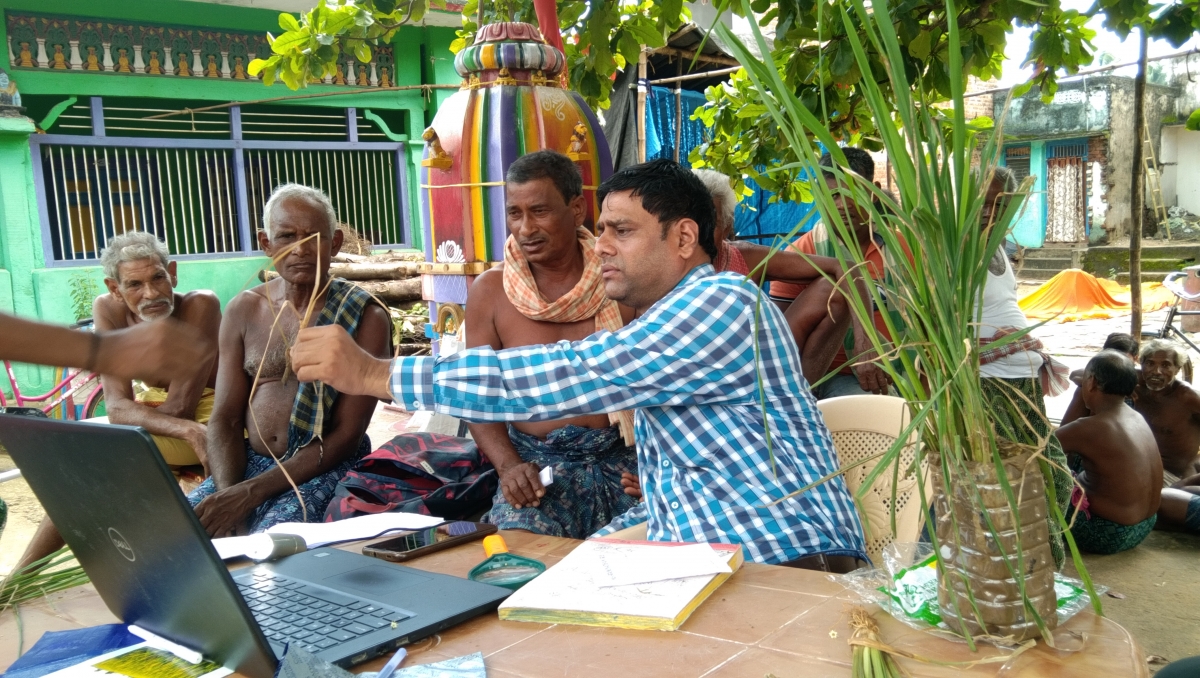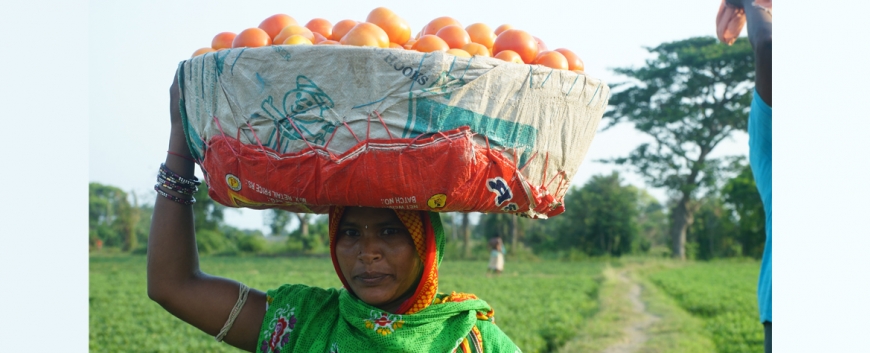Resilience Project - Oucomes so far
Over the last 4 years, the Resilience project teams have tested and implemented climate smart precision farming systems with the support of digital tools/Apps in Assam and Odisha project areas. Farmer led ‘on-farm demonstrations’ were carried out in representative agroecological zones to develop scalable transformative solutions. The key outcomes and impacts of the project so far include:
- Soil/nutrient mapping using digital Apps/tools (e.g., riceNxpert, leaf color chart) in Odisha project areas has reduced methane emissions by 30% and showed increase in crop yield by 22-30% against the base line.
- Crop diversification (Rice-legumes) has increased soil organic carbon as compared to rice monocultures practised normally in the areas.
- Integrated farming systems (e-g. combining crop-tree-livestock-fish farming) in Assam has increased household farm income by 20% and contributed to overall food security and nutrition.
- Farmer led seed production supported by public-private partnership model has improved production and availability of climate resilient flood and drought tolerant rice seeds .
- Climate resilient rice systems including Alternate wetting and drying, drip irrigation system, Direct seeded rice, System of rice intensification have increased water productivity by 40 % and reduced greenhouse gas emission as compared to baseline.
- Several initiatives in the project ( such as Village knowledge centres) has increased women and youth participation in farm level activities, decision making & knowledge dissemination through Village Knowledge Centres (VKCs- digital based dissemination).
The above-mentioned outcomes/impacts of the project have addressed several of the UN SDGs and/or targets, for e.g., SDG 1 (by increasing farmers’ income), SDG 2 (by increasing crop yield), SDG 5 (by increasing gender integration), SDG 6 (by reducing water pollution), SDG 12 (by connecting farmers to market, SDG 13 (by reducing GHG emissions), SDG 15 (by increasing carbon storage in soils), and SDG 17 (by enhancing public- private partnerships)
The project has contributed to increased science -policy interface by integrating good CSA practices into State climate action plans.




